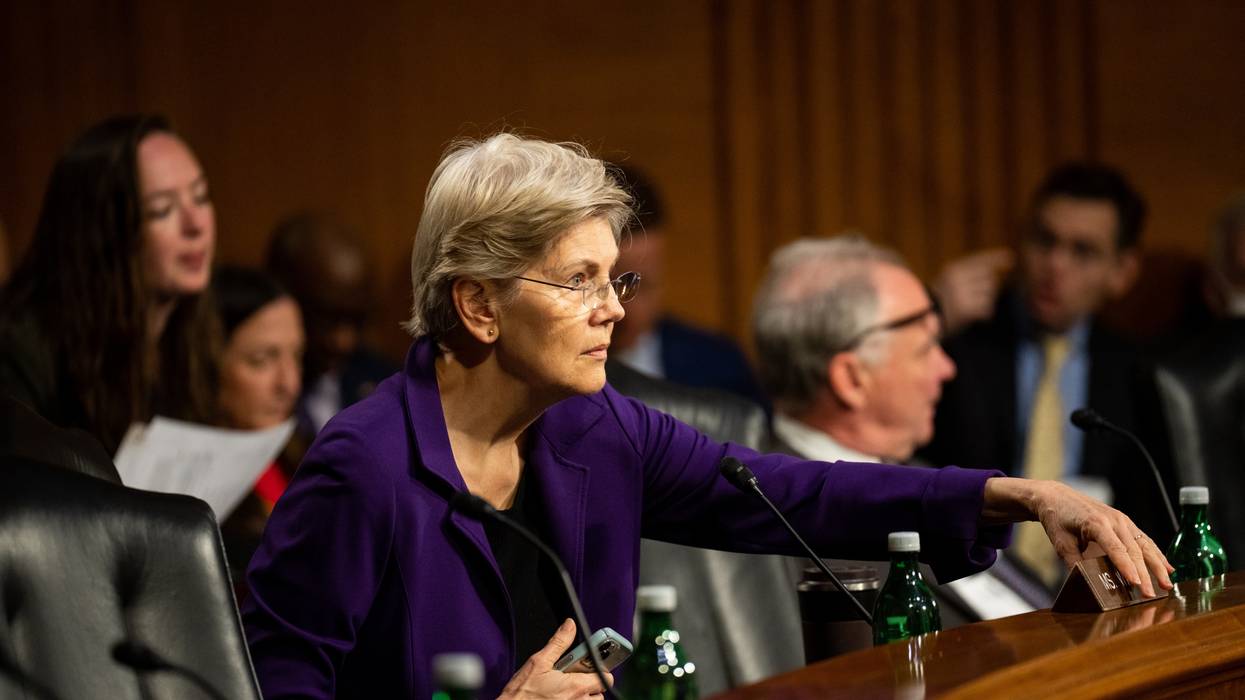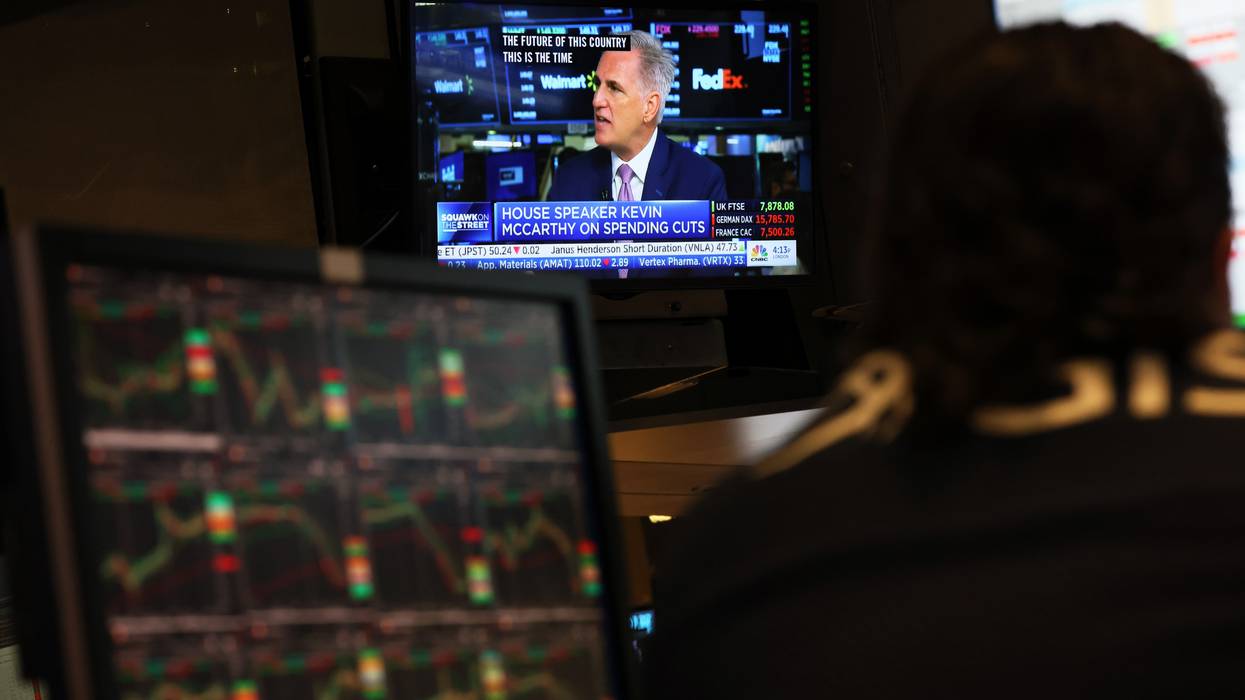Democratic Senators Rip Corporate Lobby for 'Cheerleading' GOP Default Threat and Tax Cuts
"The American people deserve to understand why you are supporting even more deficit-busting tax giveaways for giant corporations, while also cheerleading Republican demands to inflict painful, job-killing austerity on everyone else."
The Republican Party's debt-ceiling hostage scheme has benefited from the support of the United States' largest corporate lobbying organization, which has given its stamp of approval to the GOP's push for major federal spending cuts, punitive new work requirements for aid programs, and permitting changes sought by the fossil fuel industry.
While House Speaker Kevin McCarthy's (R-Calif.) office has reportedly not met with representatives of the U.S. Chamber of Commerce during the debt ceiling standoff, a representative of the powerful business group said earlier this week that such a meeting would be pointless given that the Chamber and the GOP are so closely aligned.
Neil Bradley, the Chamber's chief policy officer, told Politico earlier this week that a meeting with McCarthy would be a "cheerleading session."
"I see the relationship as respectful, so I'm not worried about wasting his time to come in and say, 'Look how much I agree with you,'" said Bradley, who previously served as McCarthy's deputy chief of staff.
In a letter to the Chamber's chief executive on Friday, a trio of Democratic senators led by Sen. Elizabeth Warren (D-Mass.) slammed Bradley's remarks and demanded to know "how the Chamber justifies supporting the Republican agenda of continued tax cuts for the wealthy, while cheerleading for threats to impose a default and austerity for everyone else."
"Instead of pressing the speaker to drop his radical demands and pass a clean debt limit increase, Bradley noted that the Chamber has pressed the White House to come to a bipartisan agreement with McCarthy," the letter reads. "Indeed, Bradley noted that the Chamber is aligned with House Republicans on their debt ceiling demands, including on spending caps, work requirements, and energy permitting."
Warren, joined by Sens. Sheldon Whitehouse (D-R.I.) and Ed Markey (D-Mass.), accused the Chamber of fully backing the GOP's "shameless hypocrisy" by lobbying for tax breaks that Republicans are expected to include in a tax cut package coming sometime next month.
"The American people deserve to understand why you are supporting even more deficit-busting tax giveaways for giant corporations, while also cheerleading Republican demands to inflict painful, job-killing austerity on everyone else in a pretense of 'fiscal responsibility,'" the senators wrote, demanding to know how much the Chamber has spent on tax-related lobbying this year and what discussions the group has had with Republicans on the House's tax-writing committee.
According to OpenSecrets, the Chamber has spent more than $19 million total on federal lobbying so far this year—the most of any organization. The Chamber says it has met with more than 150 Republican and Democratic lawmakers throughout the debt ceiling fight, which GOP Rep. Matt Gaetz (R-Fla.) publicly described as a hostage situation.
The Democratic senators' letter came as Treasury Secretary Janet Yellen warned that the federal government will run out of money to meet its obligations by June 5 if Congress does not raise the debt ceiling.
The Washington Post reported Friday that White House and GOP negotiators are "closing in on an agreement that would raise the debt ceiling by two years—a key priority of the Biden administration—while also essentially freezing government spending on domestic programs and slightly increasing funding for the military and veterans affairs."
When accounting for inflation, keeping non-military spending flat would mean potentially significant real-term cuts to key aid programs, from nutrition assistance to housing.
The Chamber has openly endorsed the GOP push for spending caps and warned President Joe Biden against using his 14th Amendment authority to unilaterally prevent a default, claiming such a move would be "as economically calamitous as a default."
On Friday, a top Treasury Department official said the White House will not invoke its 14th Amendment authority to continue paying the nation's bills if talks with the GOP collapse.

